Refine search
Actions for selected content:
20 results
From radiology to a world-in-crisis: Rolf Sievert and the re-orientation of the International Commission on Radiation Protection in the post-war period
-
- Journal:
- Medical History , First View
- Published online by Cambridge University Press:
- 29 October 2025, pp. 1-18
-
- Article
-
- You have access
- Open access
- HTML
- Export citation
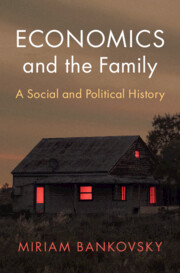
Economics and the Family
- A Social and Political History
-
- Published online:
- 08 May 2025
- Print publication:
- 05 June 2025
Introduction
-
- Book:
- Twentieth-Century Literature and the Aftermath of War
- Published online:
- 20 December 2024
- Print publication:
- 09 January 2025, pp 1-36
-
- Chapter
- Export citation
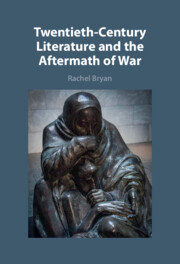
Twentieth-Century Literature and the Aftermath of War
-
- Published online:
- 20 December 2024
- Print publication:
- 09 January 2025
Introduction
-
-
- Book:
- The Cambridge Companion to British Theatre since 1945
- Published online:
- 14 March 2024
- Print publication:
- 21 March 2024, pp 1-20
-
- Chapter
- Export citation
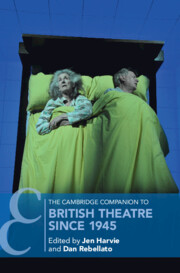
The Cambridge Companion to British Theatre since 1945
-
- Published online:
- 14 March 2024
- Print publication:
- 21 March 2024
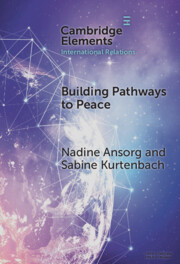
Building Pathways to Peace
- State–Society Relations and Security Sector Reform
-
- Published online:
- 21 November 2023
- Print publication:
- 07 December 2023
-
- Element
-
- You have access
- Open access
- HTML
- Export citation
Interlude
- from Part I
-
- Book:
- Wartime Shakespeare
- Published online:
- 12 October 2023
- Print publication:
- 26 October 2023, pp 146-156
-
- Chapter
- Export citation
Chapter 8 - Cinema and Theatre in the Great War
- from Part II - Theatre during the War
-
-
- Book:
- The Cambridge Companion to British Theatre of the First World War
- Published online:
- 19 October 2023
- Print publication:
- 19 October 2023, pp 144-159
-
- Chapter
- Export citation
20 - The Novel at Arms
-
-
- Book:
- The Cambridge History of the Australian Novel
- Published online:
- 28 June 2023
- Print publication:
- 27 July 2023, pp 336-353
-
- Chapter
- Export citation
Epilogue
-
- Book:
- Neutrality and Collaboration in South China
- Published online:
- 01 June 2023
- Print publication:
- 15 June 2023, pp 273-280
-
- Chapter
- Export citation
6 - Seeking Justice and Recognition
-
- Book:
- Neutrality and Collaboration in South China
- Published online:
- 01 June 2023
- Print publication:
- 15 June 2023, pp 236-272
-
- Chapter
- Export citation
5 - Popularization at a Global Scale
-
- Book:
- Statistics and the Language of Global Health
- Published online:
- 27 October 2022
- Print publication:
- 03 November 2022, pp 143-172
-
- Chapter
-
- You have access
- Open access
- HTML
- Export citation
1 - Europe and European Integration
-
- Book:
- Project Europe
- Published online:
- 24 April 2020
- Print publication:
- 23 April 2020, pp 13-49
-
- Chapter
- Export citation
1 - The origins of peacekeeping
- from Part 1 - Actor and observer
-
- Book:
- The Long Search for Peace
- Published online:
- 27 September 2019
- Print publication:
- 09 October 2019, pp 3-30
-
- Chapter
- Export citation
Part 1 - Actor and observer
-
- Book:
- The Long Search for Peace
- Published online:
- 27 September 2019
- Print publication:
- 09 October 2019, pp 1-392
-
- Chapter
- Export citation
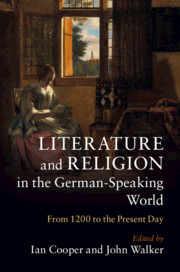
Literature and Religion in the German-Speaking World
- From 1200 to the Present Day
-
- Published online:
- 14 September 2019
- Print publication:
- 26 September 2019
The Legacy of a Revolution that Never Happened: The Post-War Politics of Former Rebel Party RUFP in Sierra Leone
-
- Journal:
- Government and Opposition / Volume 56 / Issue 2 / April 2021
- Published online by Cambridge University Press:
- 28 August 2019, pp. 245-259
-
- Article
- Export citation
Memories of ethnic cleansing and the local Iron Curtain in the Czech–German borderlands
-
- Journal:
- Nationalities Papers / Volume 42 / Issue 2 / March 2014
- Published online by Cambridge University Press:
- 20 November 2018, pp. 199-222
-
- Article
-
- You have access
- Export citation
War, monetary reforms and the Belgian art market, 1945–1951
-
- Journal:
- Financial History Review / Volume 22 / Issue 2 / August 2015
- Published online by Cambridge University Press:
- 05 August 2015, pp. 157-177
-
- Article
- Export citation
